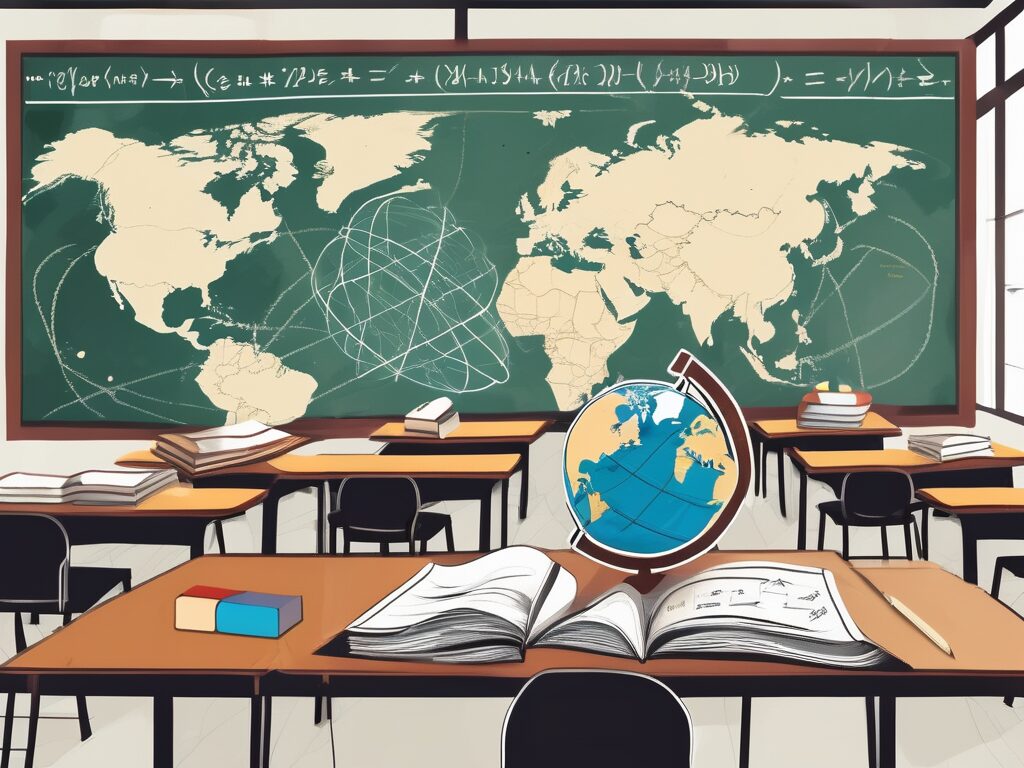The International Postgraduate Certificate in Education (IPGCE) is a globally recognised qualification that equips individuals with the skills and knowledge to teach in international schools worldwide. However, as with any profession, there are challenges that come with the territory. In the context of Malaysia, international teachers face a unique set of issues. This blog post will delve into five examples of these challenges, offering a comprehensive look into the world of an IPGCE international teacher in Malaysia.
1. Cultural Differences
Understanding and Adapting to Cultural Norms
Malaysia is a multicultural and multilingual country, with a rich tapestry of traditions and customs. For international teachers, this cultural diversity can be both exciting and daunting. It’s not uncommon for teachers to experience culture shock, struggling to understand and adapt to local customs and etiquette. For instance, in Malaysia, it’s considered rude to point with the index finger. Instead, the thumb is used. This might seem like a small detail, but it’s these nuances that can make all the difference in building respectful relationships with students and colleagues.
Language Barriers
While English is widely spoken in Malaysia, the national language is Bahasa Malaysia. International teachers may find themselves at a disadvantage if they don’t speak the local language. This can create communication barriers, not just in the classroom, but also in day-to-day life. Learning a new language is no small feat, but it can significantly enhance a teacher’s experience and effectiveness in Malaysia.
2. Educational System Differences
Curriculum Differences
Malaysia’s education system is different from many Western countries. The curriculum focuses heavily on examination performance, with less emphasis on critical thinking and creativity. This can be a challenge for international teachers who are used to a more balanced approach to education. Adapting teaching methods to fit this system while still promoting a well-rounded learning experience can be a tricky balancing act.
Teaching Styles
Teaching styles in Malaysia may also differ from what international teachers are accustomed to. The traditional teacher-centred approach, where the teacher is the primary source of information, is prevalent. This contrasts with the more student-centred approach common in Western education systems, where students are encouraged to take an active role in their learning. Navigating these differences requires flexibility and a willingness to adapt.
3. Work-Life Balance
Long Working Hours
Teaching is a demanding profession, and in Malaysia, the workload can be particularly heavy. Long working hours, coupled with high expectations for student performance, can lead to stress and burnout. It’s crucial for international teachers to establish a healthy work-life balance, taking time for self-care and relaxation.
Relocation Challenges
Moving to a new country is a significant life change. It involves leaving behind familiar surroundings and support networks. For international teachers in Malaysia, this can add an extra layer of stress to their professional lives. Building a new social network, dealing with homesickness, and adjusting to a new environment can all impact a teacher’s work-life balance.
4. Legal and Administrative Issues
Visa and Work Permit Challenges
Obtaining a visa and work permit can be a complex and time-consuming process. International teachers may face bureaucratic hurdles and delays, which can be frustrating and stressful. It’s important to start the process early and to be prepared for potential setbacks.
Contractual Issues
Understanding and negotiating employment contracts can be another challenge for international teachers. Contracts may include clauses that are unfamiliar or disadvantageous to the teacher. It’s crucial to thoroughly review any contract before signing and to seek legal advice if necessary.
5. Professional Development Opportunities
Limited Opportunities for Growth
Professional development is key to a teacher’s growth and job satisfaction. However, in Malaysia, opportunities for professional development can be limited. This can lead to stagnation and a lack of motivation. International teachers may need to seek out their own opportunities for growth, such as online courses or networking events.
Recognition of Qualifications
While the IPGCE is a globally recognised qualification, not all schools in Malaysia may recognise it. This can limit job opportunities and career progression for international teachers. It’s important to research potential employers to ensure they recognise and value the IPGCE.
In conclusion, while teaching in Malaysia can be a rewarding and enriching experience, it’s not without its challenges. By understanding these issues, international teachers can better prepare for their journey and navigate the complexities of their new professional landscape.
Empower Your Teaching Career with IPGCE
Understanding the challenges faced by international teachers in Malaysia is just the first step. If you’re ready to overcome barriers to qualification, enhance your career progression, connect with a global network of educators, and gain a comprehensive understanding of global education systems, then it’s time to take action. Join the UK’s #1 Teacher Training Course, the IPGCE, and experience the transformative impact it can have on your professional journey. With flexible online study options, the IPGCE is designed to fit into your busy schedule, providing a practical pathway to achieving your career goals. Don’t let inadequate credentials or isolation limit your potential. Join the IPGCE program today and be part of the success story shared by educators worldwide.

